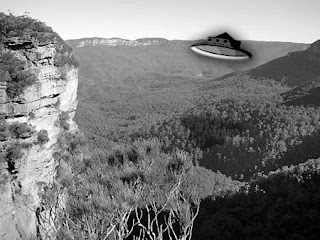Hey folks heres an update for ya'll
First of all I was travelling home earlier from Uni after watching Dorian Grey and was thinking deeply to myself when I came across this thought:
"How can I put my identity to an image? Ive abused my Artistic side for several years, keeping what I could paint bottled in, buiding up. In effect, ive turned my self portrait into everything I visually encounter and what emotions these things trigger. This could be considered as a selfish act to those expecting something to observe, as only I can experience it. How can I apply my life as an image? One moment of time doesnt speak loud enough to describe everything about me, or even how I feel at a particular moment. Portraits genuinly are deciphered by picking out the persons "soul" if you will via the aura of the image, portraits dont have words saying the hidden message for them."Dorian Grey
Its suprising how relevant a lot of the quotes said in the film we watched this afternoon relate to our personal search for portraying identity in our assignment. It was the way some of the lines in the film were brought across, the imagery that the film gestured, that started me questioning my own self conceited quest for capturing what describes me best.
The film "Dorian Gray" is starts in the year 1886, im presuming the last scene is around 1906 - 1910 due to some of the characters mentioning how Dorian had physicaly youthfull for around 20 years. A Gentleman by social standards of his time, he was looked upon by many with respect. This respect obviously became Dorian's ally later on in the film when he had to cover for his own crimes. The image that followed a person with the status Dorian consisted of was often conceived as trustworthy, therefore it was unlikey he would be convicted of any unlawful act.
Through the monotone audio and black and white image spews grace in telling a chilling tale about a man who gets his desire to stay as beautifull as his youthfull portrait. Dorian becomes so self indulged in the concept that we cant stay young forever and that we loose the essence of generic beauty as we grow older so much so that this anxiety flips to become his reality. A quote from the movie states "When one looses youth, one looses everything". His portrait was drawn by an Artist named Basil, who originally stated he did not want to sell his painting, as he felt he had "put too much of himself into his work". This got me thinking, if one puts too much of themselfs into a portrait of another person, have they corrupted the overall image?
It is also interesting to note that a few points in the film the image of Dorian Gray's portrait is displayed in Technicolour for added enthasis.
Dorian is shown playing Piano at several times in the film, which had a tendancy to add to his beauty. People would gather around to hear him play songs, seemingly whilst Dorian would be "escaping" the realities of the world around him. Dorian meets a young lady named Sybal Vyne, an entertainer for a working mans pub, who he falls in love with almost immediatly. He persues in going to visit her, realising he has found his key to pleasure. Dorian is confided by many repulsive lectures giving advice on life by his freind Harry. At one point Harry plays with Dorian, tempting him to test the love of Sybal. Was he jealous? Was he afraid his freind Dorian was going to be played for a fool? Was he acknowledging that Dorian was so self confided that he didnt really know what he wanted from life? Harry and Dorian to me play the roles of the Master and the Apprentice, Dorian seeming to soak in Harries somewhat wise, yet foul advice. Many of the things Harry annunciate's depicts the devil upon Dorians shoulder; through his words I can see the cold path layed before Dorian to come.
It is interesting to note the cultural references used within this film, the times were dark and when sexism towards women was common. I can see Dorian's personality at times trying to keep within these restricted boundaries of what at the time was considered normal. He appears far more at ease to embrace women on the same level than as something below him, his concious is set straight in how when he knows of his power, he
will hurt people if he falls in love with them. There are references that Dorian is of a homosexual nature within Oscar Wildes original novel, this being subtly hinted as in these times such a thing was a crime. It is considered that the story was to help express Wildes own homosexuality, through a tale of self loathing and love, hiding and conformity. Within the film I did notice a few very slight innuendos to this subject.
As Dorian expresses his love to stay young forever, and confides to an ancient manuscript that came with an old model of a Cat, it seemingly appears his inner wish becomes reality. After each act of good or bad that he does, it is further reflected in his portrait. Dorian decided that to live his life he will live
only for his own pleasure.
The way he went about this was simple: refer to his portraits expression, which he beleived told him what he should do with his life. Undoubtebly Dorian had sold his soul into the portrait, yet clearly still wasnt reading the situation properly.
The youthfull Dorian Gray morphs from a young, proud gentleman to a gruesome, hellish creep over time due to many acts of sin from Dorians behalf.
At the point of deciding he is to conform to how he thinks he should live his life, Dorian had tried to push Sybal away through a letter. He later regrets this and realises she means everything to him, only to find she has died. This helps to trigger Dorians blunt rage, his anxiety to feel pleasure once more. He detests any words from his freind Harry, choosing to ignore them. Dorian remarks "Its as bad as if I had slit her throat", beleiving his mind games to test her love is what killed her, therefore meaning he was now a muderer.
 Later in the film we see Dorian approaching Basils Neice, who he finds playing Piano to the song "Yellow Bird" that Sybal used to sing to him. He unsuprisingly falls for her, slow to finalise his emotion though, as he knows of the monster he has become. This gives a clear indication that Dorian felt paranoid about himself on the inside, about what he'd done, about how he was learning about his own identity through wrong doing. Still he paces around relentlessly gaurding his portrait so people cannot discover his secret. Dorian unleashes it to Basil later in the film after some persuading to discover the exact pandemonium behind his creation. With only a slight slip of words, Basil is killed by Dorian to keep the secret of the portrait intact. Presumably as Dorian has "killed before" it felt easier to do it a second time, especially as this person wasnt his lover (or was he someone he may of loved in slight referencing to his open sexuality?).
Later in the film we see Dorian approaching Basils Neice, who he finds playing Piano to the song "Yellow Bird" that Sybal used to sing to him. He unsuprisingly falls for her, slow to finalise his emotion though, as he knows of the monster he has become. This gives a clear indication that Dorian felt paranoid about himself on the inside, about what he'd done, about how he was learning about his own identity through wrong doing. Still he paces around relentlessly gaurding his portrait so people cannot discover his secret. Dorian unleashes it to Basil later in the film after some persuading to discover the exact pandemonium behind his creation. With only a slight slip of words, Basil is killed by Dorian to keep the secret of the portrait intact. Presumably as Dorian has "killed before" it felt easier to do it a second time, especially as this person wasnt his lover (or was he someone he may of loved in slight referencing to his open sexuality?).
The films dark, twisted storyline breaks into swing moreso towards the end of he film, where people become aware that Dorian isnt aging and that Basil was missing. One man described the painting of Dorian to Basil's Neice, which in turn led to the suspision that something sinister was taking place. Dorian, finally accepting that people move the world, time is a beautifull thing and that his portrait has led him to do evil things has made him aware that he needs to change in order to turn the portrait back to its former self. After realising that breaking up with his wife (Basil's Neice) wasnt a strong enough good deed, he decides to stab through the heart of the canvas. This in turn kills Dorian Gray who appears as a shrivelled corpse, whilst his portrait returns to its former beauty. This goes to show that, although we die, an image can be a moment in time captured forever, that we forever change and everyone around us is a living corpse.
Overall for its usefulness through its hypothetical messages, I give this film a solid 9/10!
Until next time,
Take it easy folks
Kwiss









 Later in the film we see Dorian approaching Basils Neice, who he finds playing Piano to the song "Yellow Bird" that Sybal used to sing to him. He unsuprisingly falls for her, slow to finalise his emotion though, as he knows of the monster he has become. This gives a clear indication that Dorian felt paranoid about himself on the inside, about what he'd done, about how he was learning about his own identity through wrong doing. Still he paces around relentlessly gaurding his portrait so people cannot discover his secret. Dorian unleashes it to Basil later in the film after some persuading to discover the exact pandemonium behind his creation. With only a slight slip of words, Basil is killed by Dorian to keep the secret of the portrait intact. Presumably as Dorian has "killed before" it felt easier to do it a second time, especially as this person wasnt his lover (or was he someone he may of loved in slight referencing to his open sexuality?).
Later in the film we see Dorian approaching Basils Neice, who he finds playing Piano to the song "Yellow Bird" that Sybal used to sing to him. He unsuprisingly falls for her, slow to finalise his emotion though, as he knows of the monster he has become. This gives a clear indication that Dorian felt paranoid about himself on the inside, about what he'd done, about how he was learning about his own identity through wrong doing. Still he paces around relentlessly gaurding his portrait so people cannot discover his secret. Dorian unleashes it to Basil later in the film after some persuading to discover the exact pandemonium behind his creation. With only a slight slip of words, Basil is killed by Dorian to keep the secret of the portrait intact. Presumably as Dorian has "killed before" it felt easier to do it a second time, especially as this person wasnt his lover (or was he someone he may of loved in slight referencing to his open sexuality?). 








